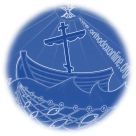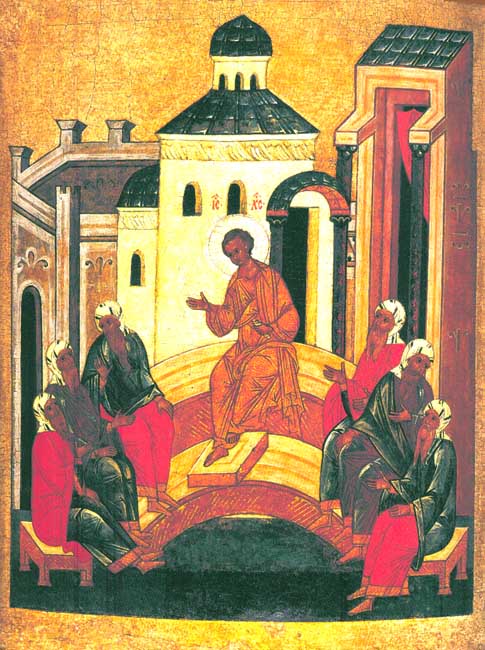In interpreting these passages that refer to God’s wisdom, the Church Fathers teach that they clearly revolve around Christ. I will not quote all the passages, but only the most significant ones.
In response to Arius, who said that Christ was a creation of God and advanced in wisdom and grace with the passage of time, St. Athanasius the Great said that there was no advancement in the Logos and that the body that Christ assumed was not wisdom, but rather the body of wisdom. Therefore, he says that wisdom was not perfected because it was wisdom, but the human body became perfect in wisdom. This connects with what we have said elsewhere that the wisdom in Christ was revealed with the advancement of his physical age. At another point, the great champion of Orthodoxy, St. Athanasius the Great, says that the Son of God is the Word of God and is Wisdom. He is the reason and the living will, and in him is the will of the Father, he is the truth, light, and power of the Father. In his interpretation of the words of the Proverbs, “Wisdom has built herself a house,” he says that these also refer to Christians who become temples of the Holy Spirit. Finally, in writing against Arius, who stressed the creatureliness of the Word of God, St. Athanasius refers many times to the words of the Apostle Paul that Christ is the incarnate Wisdom of God.
In his struggle against Eunomius, Saint Basil the Great uses the apostolic saying that Christ is the wisdom of God, saying that this sentence means that all the power of the Father resides in Christ, and therefore everything the Father does the Son does in the same way.
The Fathers interpret the mystical passages in the book from this perspective. St. Cyril of Jerusalem speaks of “the wisdom, power, and righteousness of God incarnate.” St. Epiphanius says: “The wisdom of the Father is the Word of God incarnate.” Referring to the Virgin, St. John of Damascus says: “And the Word incarnate and the wisdom of God, the Son of God, overshadowed her.” Referring to the Mother of God, Sophronius of Jerusalem says: “She alone bore the wisdom of God incarnate in her womb.” Blind Didymus has an important saying: “It is impossible to acquire light except from light, so it is also impossible to acquire wisdom except from the wise, that is, the Son from the Father.”
These are not abstract sophistries revolving around an unknown wisdom, nor are they even something that points to the power of God, but the renewed wisdom of God, that is, the Son and Word of God. In the Old Testament there are prophecies about the incarnation of the incorporeal Word, and in the New Testament there is praise, glorification, and life for Him.


